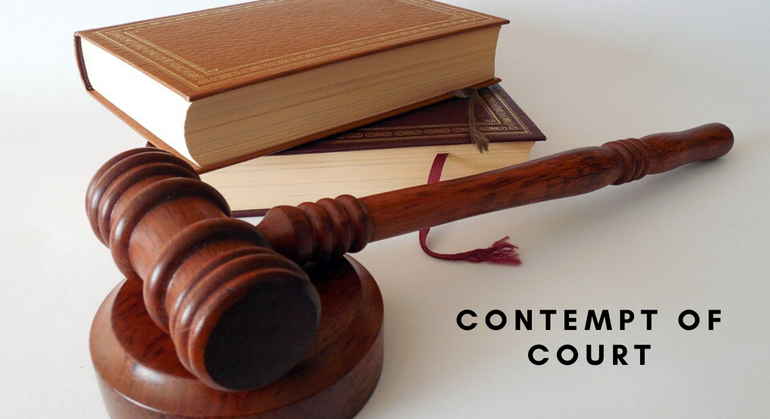CONSTITUTIONAL VALIDITY OF SECTION 2(c)(i), CONTEMPT OF COURTS ACT, 1971: A CRITICAL ANALYSIS
Author – Abhinav Viswanath, Student at School of Law, CHRIST (Deemed to be) University
BEST CITATION – Abhinav Viswanath, CONSTITUTIONAL VALIDITY OF SECTION 2(c)(i), CONTEMPT OF COURTS ACT, 1971: A CRITICAL ANALYSIS, INDIAN JOURNAL OF LEGAL REVIEW (IJLR), 3 (1) OF 2023, PG. 827-833, ISSN – 2583-2344.
ABSTRACT
It is a well-known fact that the freedom of speech and expression is an important facet of any democratic nation. The Constitution of India recognises the freedom of speech and expression as a fundamental right under Art. 19(1)(a). However, it is also crucial to ensure this freedom is not absolute in nature to preserve sovereignty, public order, decency and morality in the nation. The freedom of speech and expression has been restricted in various platforms, and the Constitution provides that the same includes in matters of contempt of court to preserve the administration of justice, and the sanctity of the courts. The Contempt of Courts Act, 1971 was enacted to define and limit the powers of certain courts in punishing contempt of courts and the procedures involved therein. However, a particular provision of the law has led to the rise in various debates regarding its scope, extent and limitations due to its apparent vague phrasing. Sec. 2(c)(i) of the Act has been critically analysed in the paper by incorporating the test of reasonability under the right to equality as well as the freedom of speech and expression. The paper focuses on the scope of Art. 14 and the impugned section by critically analysing the judicial approach of the Supreme Court in situations regarding the arbitrariness, and the discretion to determine the meaning of the phrase ‘tendency to scandalise’. The paper further critically analyses the scope of Art. 19(1)(a) and the reasonable restrictions laid down under Art. 19(2) to determine the validity of the clauses mentioned in the impugned section. The paper has also referred to the certain judicial approaches in similar circumstances in the USA and UK to critically analyse the ambit of Sec. 2(c)(i). The paper concludes by providing an understanding of the test of due process of law involved in determining the constitutional validity of any statute to determine the constitutional validity of the impugned provision.
